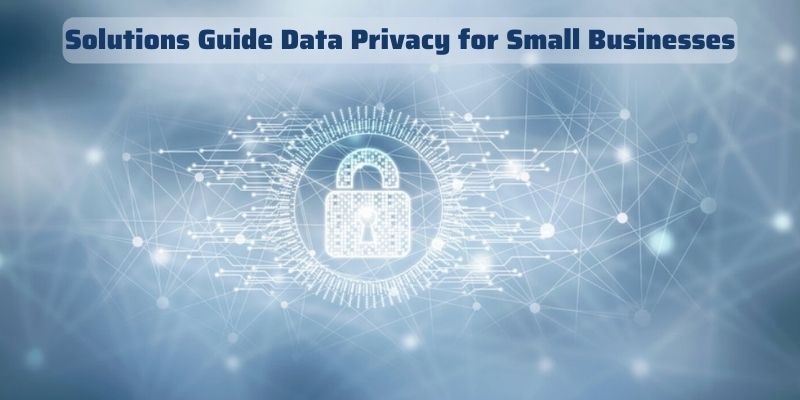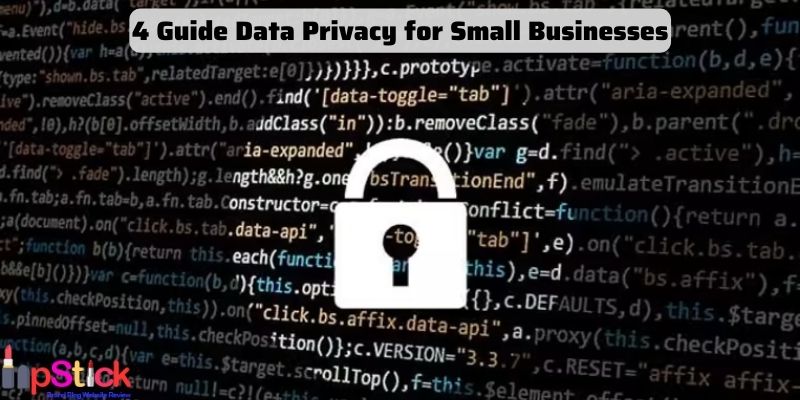What is data privacy for small businesses? Today, it’s nearly difficult to run a business without gathering or collecting data. Some of the data will undoubtedly be personal customer data, while some will be crucial data required to sustain the life of the firm.
Both points must be addressed to ensure the health of any firm. company data must be available and numerous enough to support company activities, but firms must also keep consumer data private and safe.
If a company loses its own data, it may be unable to carry out activities efficiently or at all. That is bad enough, but it mostly hurts the business.
In contrast, if a company loses its customers’ data, it may face legal consequences such as government inquiries and fines, as well as civil cases and substantial damaging judgments. A public data breach can have a negative impact on a company’s stock price. This article, lipstickbr.com will addresses both issues.
Principles of protecting data

Data does not simply appear; it moves. Data is collected somewhere, transferred from the collection point to a storage point data privacy for small businesses, processed in some fashion, and then transported to access points as required by the business. That technique can be extremely complicated or quite simple. Taking an order on an ecommerce website is a basic example:
- Collected: The website collects personal delivery information and payment information on the checkout page.
- Transferred: That data is transferred to the web server and probably stored in a database on that server.
- Processed: That data may be processed to support ancillary functions such as decrementing the inventory of the items sold, or to generate packing slips.
- Accessed: Order fillers need to view some of that data in order to fulfil the order and prepare it for delivery.
There are opportunities for illegal access or data loss at each stage of the process. Using the website ecommerce store as an example, here are some procedures to take to protect data privacy for small businesses.
Protecting data in transit

This kind of order data “transits” a lot. The initial transit is from the web browser of the customer to the ecommerce web server. We do not, contrary to popular opinion, “visit” a website; rather, the website comes to us. Web pages are downloaded to our computers, where they are interacted with and data is sent back to the web server.
In this scenario, the customer input their credit card information on their own computer before sending it to the web server as the final step in filling up the shopping cart data. That sensitive credit card information is transported through the internet, which is a hostile and dangerous environment.
Data is meaningless in and of itself; it will likely be moved numerous times over its lifespan. Order fulfillment employees must know what was ordered, shipping businesses must know the customer’s name and address, and credit card companies must know how much to charge the account.
It’s rare that all of this occurs in one location, thus this information gets transported to a variety of locations, including third-party organizations outside of the company that gathered the data in the first place. Each of these transactions must be done in a secure manner.
Solutions Guide Data Privacy for Small Businesses

The most effective strategy to protect data privacy for small businesses throughout this leg of the journey is to utilize an SSL certificate and the HTTPS protocol, at least on pages that collect sensitive data.
This step ensures that data sent between your web server and your customer’s browser is encrypted as it travels across the internet. If a bad man intercepted your customer’s sensitive data, he wouldn’t be able to do much with it because it would be an encrypted mess of gibberish.
If SSL encryption is not possible for some reason, you can add encryption to nearly any data transfer by using a Virtual Private Network (VPN). When choosing a small company VPN, there are several factors to consider, so do your homework.
Perimeter 81 and Nord Layer are two examples of enhanced corporate VPN services that include application security and access rights management in addition to connection security. These solutions let enterprises to combine on-premises services with cloud SaaS packages, allowing both internal and external employees to access all necessary software and data stores with a single login.

